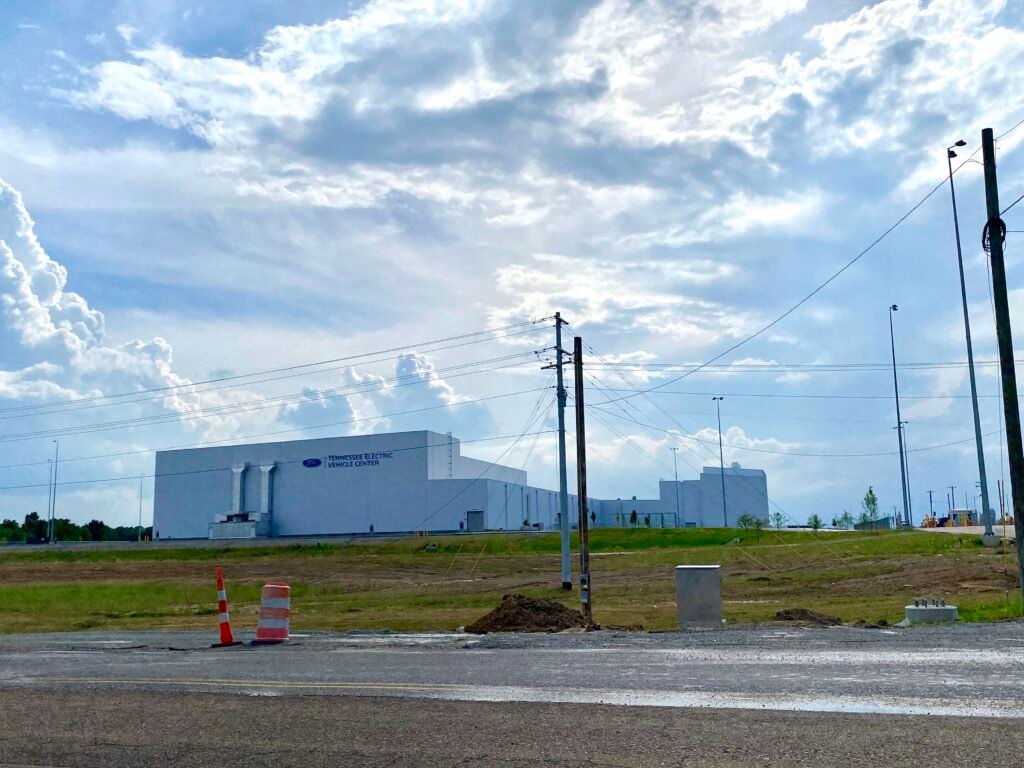Electric Vehicle Manufacturing Jobs in Tennessee
Tennessee has managed to hold onto its position as one of the top states for electric vehicle manufacturing jobs, despite a slowdown in industry investments and ongoing federal policy uncertainties. It ranks second in expected employment in this sector within the Southeast, with around 16,262 predicted jobs, trailing behind Georgia, which leads with about 26,428 jobs.
The state’s strong showing largely stems from the 5,800 jobs linked to Ford Motor Company and SK’s Blue Valval City, as well as other electric and battery manufacturing initiatives. In exchange for a $5.6 billion project, Tennessee has put forth a significant incentive package worth $900 million. While new battery production facilities are being established, mass production of Ford’s next-generation electric trucks has been delayed, likely not starting until 2028, since the focus is now leaning toward smaller, more affordable electric models.
A recent report, released on September 10, emphasized the pressures industry faces to produce cost-effective vehicles and acknowledged the evolving landscape of electric transportation in states including Tennessee. This marks the sixth annual study on this subject, coordinated by Atlas Public Policy and backed by the Southern Alliance for Clean Energy.
Nick Nigro, the founder of Atlas Public Policy, mentioned in a webcast that recent surges in EV manufacturing investments have coincided with tax breaks put into place during the Biden administration. However, there’s still ambiguity about these incentives, particularly a $7,500 consumer tax credit that was approved as part of a budget deal in Congress this summer, creating additional market uncertainty.
As of June 30, $78.8 billion in manufacturing investments has been announced in the Southeastern U.S., though the pace of new investments dropped to $4.8 billion in the last year—significantly less than the previous year’s $15.2 billion, highlighting a concerning slowdown.
Nigro pointed out that while there was clearly a spike in manufacturing investments, it hasn’t been a constant trend. He noted that temporary fluctuations in demand, influenced by government policies or typical business cycles, could lead to further project cancellations.
Tennessee is also working on expanding its electric vehicle charging infrastructure, although it remains behind in terms of charger availability compared to other states. Some businesses have even paused or abandoned their investment plans. For example, Piedmont Lithium scrapped an $800 million investment in a lithium processing facility in southeastern Tennessee that was set to create roughly 147 jobs.
Additionally, General Motors announced layoffs affecting 700 workers at its Spring Hill assembly plant due to a temporary production slowdown, while Tenneco plans to let go of 82 employees at its own facility. Volkswagen also reported it would be suspending production of certain electric SUVs and reducing its workforce by about 160 employees as a reaction to market demand shifts.
Implications of the EV Tax Credit
According to Nigro, approximately 80% of EV manufacturing facilities in the Southeast are either active or still under construction. The pressing question remains, though, whether the demand will sustain full production levels at these plants. Stan Cross from the Southern Alliance for Clean Energy echoed these sentiments, expressing uncertainty about how the market will respond once the consumer tax credit for EVs comes to an end.
Cross mentioned that high sticker prices could still deter potential buyers, despite the overall cost-effectiveness of owning an EV over time. Estimates suggest that fewer than half of last year’s EV sales were eligible for tax credits, potentially leading consumers and companies to rethink purchasing strategies and searching for more cost-effective production methods.
The Benchmark Energy Market Analysis Company reported that about half of the EVs sold in the U.S. will qualify for the new Clean Vehicle Tax Credit in 2025, but many popular models will still be eligible for full or partial tax deductions. Still, Nigro warned that it might be challenging for some vehicles to find a market without competitive pricing.
While stronger regulations on foreign materials have been set, manufacturing tax credits are still applicable to batteries. The Inflation Reduction Act has indicated a preference for EVs to be built with domestic components. Interestingly, Cross speculated that the nearing deadline of the tax credit could spur a temporary uptick in EV sales, projecting record-breaking numbers in the upcoming quarter.
Tennessee’s Market Status
Tennessee recorded a 5.4% share in the EV sales market, with new EV registrations rising 35% from the previous year. This puts Tennessee in a solid position, ranking fourth among the six surveyed southeastern states, although it’s still 31st in the national landscape.
During the survey period, the Southeast reached over 912,000 cumulative EV sales, accounting for more than 8% of the market. Tennessee contributed 60,434 of these sales.
Charging Infrastructure Developments
In terms of charging infrastructure, Tennessee ranks fourth among southeastern states for the number of charging stations per capita. The growth rate for publicly accessible rapid EV chargers was reported at 60% in the past year, now totaling approximately 830 fast charging ports. The state has initiated a program to support the installation of charging stations, which has seen ongoing development of additional sites.
Although Tennessee’s charging initiatives receive federal support through the National Electric Vehicle Infrastructure Program, there were recent interruptions due to administrative changes. However, there is hope for progress moving forward as guidelines have recently been released for states reapplying for funding.







